The surprising inspiration behind Tom Hardy's 'Bikeriders' voice
There’s something about the voice of Tom Hardy’s “The Bikeriders” character Johnny that sounds vaguely familiar. And also, for a hulking motorcycle gang leader, unquestionably strange.
The delivery is a bit nasal, sometimes high-pitched, and even, without meaning to perhaps, flat-out comical. A bit like ... Bugs Bunny?
“There you go!” Hardy booms, leaning into his smartphone’s camera and flashing a smile as if declaring “Jackpot!”
“Yes, Bugs Bunny, 100%,” he says. “Why? Well, there’s a playfulness in that. I like to mix ‘Taxi Driver’ and Disneyland to balance my character.”
Join our Watch Party!Sign up to receive USA TODAY's movie and TV recommendations right in your inbox
Need a break? Play the USA TODAY Daily Crossword Puzzle.
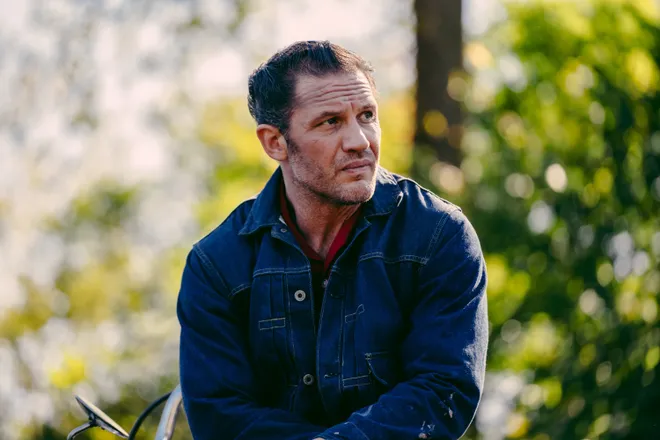
Essentially, Hardy is using Johnny’s voice to lull viewers into a false sense of security.
There’s a gentleness implicit in his delivery that is completely at odds with the gang leader who’s ready to rumble at a moment’s notice with his Vandals motorcycle club, a stand-in for the real Chicago Outlaws club that was the subject of photographer and reporter Danny Lyon’s 1968 book “The Bikeriders.”
“I enjoy counterbalance,” says Hardy, known for his comic-book antihero in 2018's “Venom” and his star turn in 2015’s “Mad Max: Fury Road.”
“That means, if you’re presented with a figure like Johnny, this guy with, in quotes, masculine biker sexuality, I want to look for traits that are a complete counterpoint to that, so, what’s not cool, what’s not sexy,” Hardy says of his odd vocal choice. “I’m looking for those conflicting elements that exist in the human condition.”
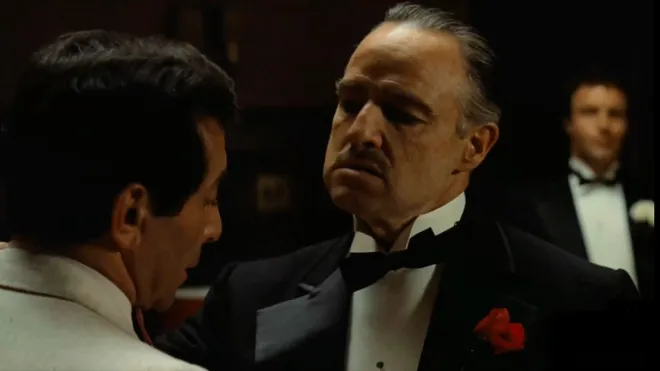
But Hardy also is playing off the inherent power of a figure who seems mysteriously menacing, a bit like Marlon Brando’s terrifyingly soft-spoken mob boss in 1972’s “The Godfather.”
“Anyone trying to adopt power in a room will not be shouting, just like people who speak loudly in a bar fight are about to be knocked out,” says Hardy. “A big man who’s quiet, he makes you lean in.”
Marlon Brando's 'Wild One' is a touchstone for Tom Hardy in 'The Bikeriders'
In “Bikeriders,” which also stars Austin Butler and Jodie Comer, Hardy's Johnny is looking for a sense of community among his blue-collar friends and decides to start a motorcycle club. As founder, he’s seeking a way to project leadership.
One day, Johnny finds just that while watching a movie on television. It’s the now-classic 1953 movie “The Wild One,” which starred a young Brando as the leader of a motorcycle gang that menaces a small Western town.
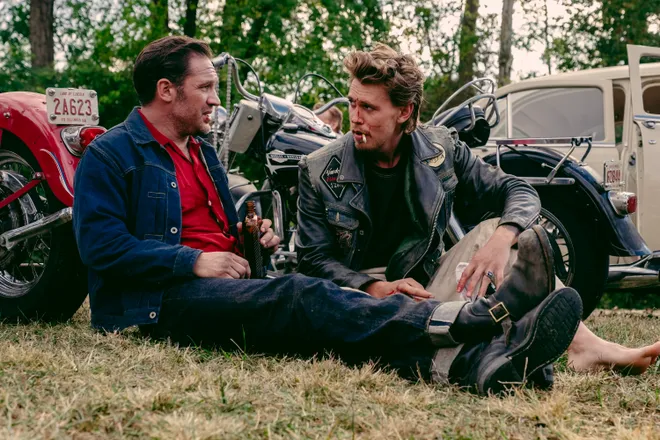
In “Bikeriders,” we see Hardy’s Johnny watch Brando – whose character also is named Johnny – deliver his most famous line from that film. When a woman connected to the gang asks Johnny what he’s rebelling against, Brando deadpans, “Whaddaya got?” As he does, Hardy’s Johnny is seen mimicking the phrase.
Hardy, who if prompted adores waxing philosophical on the craft of acting, dives into a deconstruction of his own work.
“Johnny’s the oldest of his gang, the leader of the pack, and yet he’s got to watch a movie with Marlon Brando in order to learn how to sound cool,” he says. “Johnny is heroic but pathetic, wretched but courageous, fun but makes terrible choices. So his voice, yes, it was designed to feel just a little bit creepy. It manipulates that notion of power.”
Silence is a tool of the greatest actors, says Tom Hardy
While Hardy says he was not remotely trying to borrow from Brando for “Bikeriders,” he clearly admires the legendary actor, who died in 2004 at age 80.
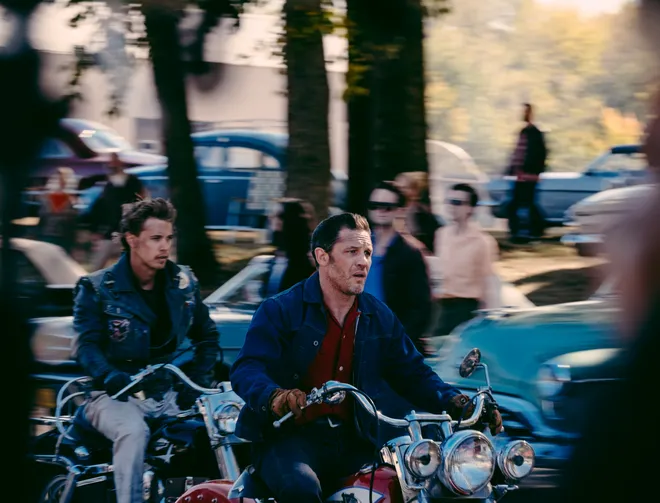
“Marlon was a genius, a man who struck the right chord at the right time and helped launch this hive of method acting,” says Hardy, referring to a style that requires actors to disappear completely into their roles. “If there’s any of (Brando) in my Johnny, it’s only a residue.”
What strikes Hardy most about Brando’s magic isn’t so much his delivery as his reaction shots. Typically, when Brando’s characters are called upon to speak, he will hold off, Hardy says.
“Watch him, right when the camera cuts to him, often he’ll sandbag, he’ll look away, he’ll create a tense moment, and only then return to his line,” he says. “One of Marlon’s greatest tools was silence.”
That said, Hardy is not a huge fan of “The Wild One,” one of the icon’s earliest mainstream hits after he tore up the screen in 1951’s “A Streetcar Named Desire.”
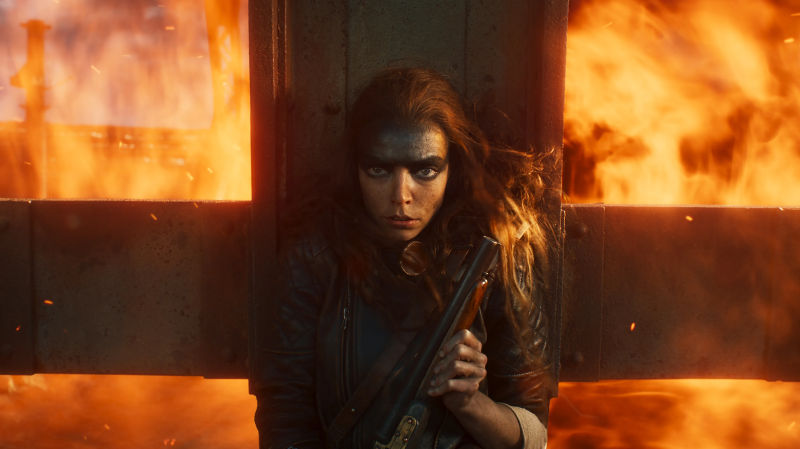
“I watched a bit of it and honestly I thought it was unwatchable,” he says. “It just felt dated, and almost like a parody, which of course is what you’d expect. But for its time, it stood out. It was rocket science then.”Hardy laughs. “But, yeah, if I’d role modeled on that movie and turned in a performance where my Johnny is going, ‘Hey, bada boom, bada bing, bada bang,’ the director would just say, ‘Please stop doing that.’ ”
Disclaimer: The copyright of this article belongs to the original author. Reposting this article is solely for the purpose of information dissemination and does not constitute any investment advice. If there is any infringement, please contact us immediately. We will make corrections or deletions as necessary. Thank you.







